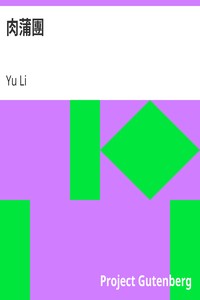| Summary |
"The Carnal Prayer Mat" by Li Yu is a novel written in the late 17th century during the Ming Dynasty. The work explores themes of sexual desire and moral implications, intertwining humor and criticism of societal norms through its characters and narrative style. The main character, a young scholar named 未央生 (Weiyang Sheng), grapples with the complexities of love, lust, and virtue as he interacts with various figures, including a reclusive scholar and young women. At the start of the story, the narrative sets the stage with a philosophical introduction that discusses the nature of desire and the consequences of indulgence. It introduces the protagonist, 未央生, who is characterized by a strong passion for beautiful women, despite being advised by the ascetic monk, 孤峰 (Gufeng), to renounce worldly pleasures. As the characters engage in discussions about the duality of love and lust, 孤峰 shares his wisdom on the importance of moral integrity, contrasting 未央生's hedonistic tendencies. This opening provides a glimpse into the tensions between desire and virtue that will likely unfold as the story progresses, inviting readers to reflect on the balance between human pleasure and ethical conduct. (This is an automatically generated summary.)
|

